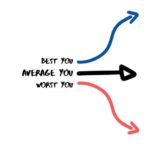Online shopping is certainly a wonder of our time. The idea of being able to think of a product you want to buy, find it, order it, and have it delivered to your door without you even having to leave your house was unimaginable for our grandparents.
Minus the fact that we can never hold the product in our hands until it arrives, online shopping is pretty frickin amazing. Despite this minor inconvenience, online shopping has a simple way of overcoming our hesitations to hitting the “add to cart” button: Product reviews!
But here is where things get interesting, and perhaps you know where I am going with this…
Think about the last time you went shopping online. In the midst of searching for a product, you finding one that is highly rated with an average of 4.9 stars out of 5!
You’re already so intrigued that you almost hit the “buy with one click” button. However, you cool your jets and you opt for a second opinion. As you scroll down to the product reviews, you see 5-stars galore.

You keep scrolling, maybe stumble upon a 4-star here and there because the package arrived damaged, but you know that doesn’t make it a bad product. At this point, you’re feeling pretty convinced and you’re thinking “I would be a fool to pass up on this deal”.
But then you see it… the infamous 1-star review.

At this point, you might as well have been told that the inventor of this product also sacrifices kittens to Cthulhu, because you’d feel the same way in either case.
Your entire worldview regarding this product has now been shattered. Everything you thought you knew about it becomes muddied and you start to question how you could ever be such a fool for buying such an awful product.
I’ll admit, this might a slight over-exaggeration of how things actually play out, but it is not far off. There is great power in the 1-star review.
By now you might be thinking, “so why does this happen, Derek?”
Well, it comes back to a little cognitive distortion known as Mental Filtering, which is a pattern of thinking that causes us to magnify the negative and minify the positive of a given situation. From a biological standpoint, this actually is a pretty effective way of keeping us safe. The little fear centre of our brain tends to highlight negative experiences over positive ones because it protects us from getting hurt. However, much of what this part of our brain thinks will hurt us is imagined or not physically capable of hurting us in the moment (it just thinks it might be). But from a risk-reward point of view, it is better to avoid the risk altogether.
“Okay, what does this have to do with the important things in life?”
Good question.
Beyond just online shopping, we actually apply mental filtering daily without even realizing it. A common example is when we are reflecting on some past experience or period of time. Let’s say you finished a long week and find yourself laying in bed reflecting on the past 7 days. If every single day you felt like you had a “good day”, it very likely that you will conclude it is also a good week. But what about when you reflect on a week that had a mix of good and bad days. What if you had 6 “good days” and one exceptionally “bad day” peppered in? How might you rate this week now???

Chances are high you might not feel so quick to still label it as a “good week”. You may even be inclined to call it a “bad week” just because of that one day.
But is this rational?
If we apply the same logic that we would to the 1-star review analogy, I think we can all collectively conclude that it is completely irrational.
One bad day, one bad moment, one back action, or even one bad second should not have the power to ruin our entire surrounding experience. Yet, so many of us allow our worldviews to be shaped by negative thinking and emotions. We become so fixated on the “bad thing” that we never take a second to ask ourselves whether do so beneficial or whether it is creating the conditions for more negative experiences.
As the stoic Marcus Aurelius said, “The soul becomes dyed with the colour of its thoughts.”
To say the same thing but less poetically, you become your thoughts.
In life and in sports, we cannot always change whether we have a bad or a good day. But we can choose which we give our attention to.
This is easier said than done, and I am well aware that it may require overriding both the nature and nurture within you. However, this doesn’t mean it is impossible. Much of our thinking is built around patterns and all I am trying to do is point out one of the most common patterns we like to follow.
Bringing awareness is the first step, but the action is up to you.
-Derek





